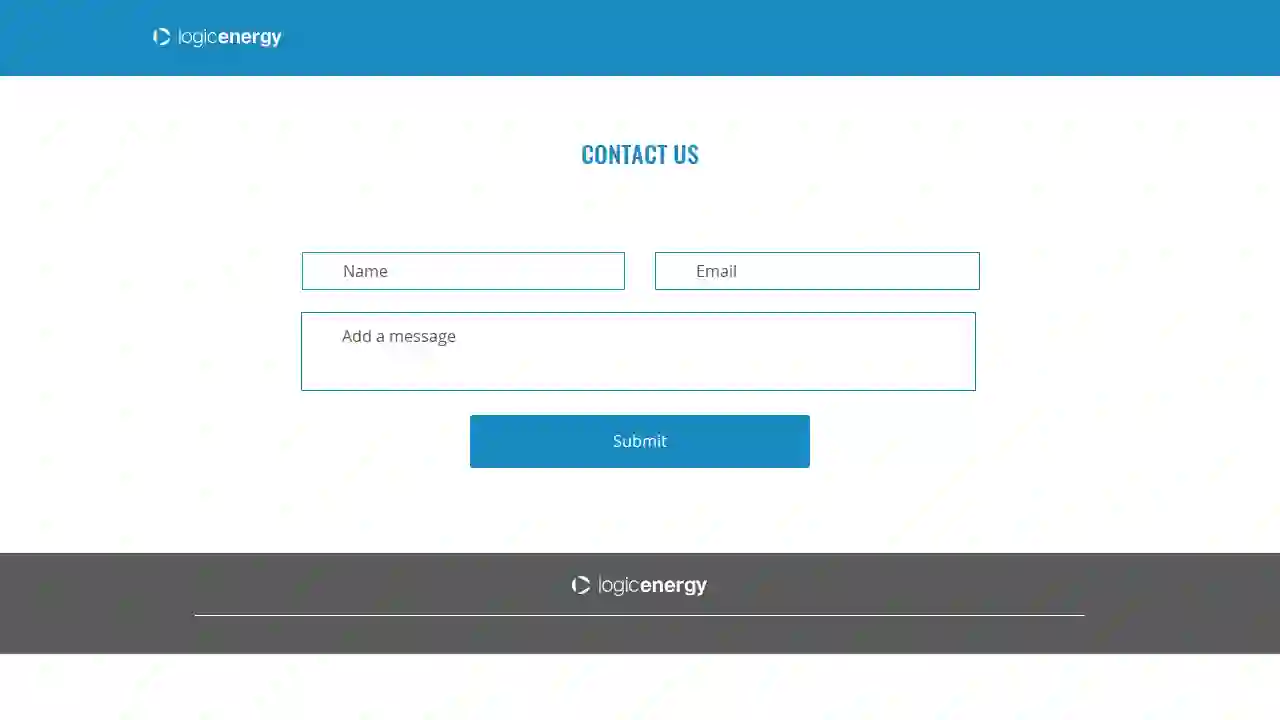Solar Installers Partick
Find Solar Company in Partick
Get multiple Solar Panel Installer quotes for your project today! Compare profiles, reviews, accreditations, portfolio, etc... and choose the best offer.

Eco Energy Ltd
2.311 reviewsEco Energy Ltd, 20 Payne St, Glasgow, G4 0LF, GBWelcome to Eco Energy Ltd, your premier partner for renewable energy solutions in Scotland and the north of England. Based in Glasgow, we are dedicated to promoting sustainability and efficiency through our cutting-edge energy services. We specialize in the installation of Solar Panels, Air Source Heat Pumps, Insulation, and advanced Battery Storage systems. Our team of trusted experts has successfully completed thousands of projects for both domestic and commercial clients. We offer a comprehensive range of services designed to optimize your energy system, including Solar Panels, Heat Pumps, Insulation, Battery Storage, Inverter Upgrades, Birdproofing, Windows, and more. With our cutting-edge battery storage and grid trading solutions, we help you maximize your investment, delivering significant financial benefits and energy savings.
- Services
- Why Us?
- Accreditations
- Gallery
Get Quote
Riverbank Solar
Technology House, 9 Newton Place, Glasgow, GBRiverbank Solar are IT Support, Network Support & Managed Service Providers. For 20 years we have supported small to mid sized companies throughout Glasgow, Edinburgh, Scotland and worldwide. We cover Windows Server Support, Desktop & Laptop Support, Telecoms, Wifi as well as Cloud Services like Office 365, Azure & AWS, Remote Access and DR & Backup. We also specialise in Cyber Security such as Network Penetration testing, Anti Virus. To see how we can help arrange a FREE IT Audit or call 0141 474 1995. 24/7 IT Support Our History CONTACT US SERVICES What We Do IT Support and Network Support in Glasgow & Edinburgh Riverbank Solar are specialist IT Support and Network Support consultants based in Glasgow and providing IT services in Glasgow, Edinburgh, Aberdeen, Dundee, Inverness and IT support services throughout Scotland. As a leading IT provider Riverbank are perfectly placed to provide expert and impartial advice on you IT and network support and associated services. We focus on providing cost effective and essential IT solutions to all types of business large or small. From our base in Glasgow we support our IT consultants in Edinburgh, Aberdeen, Dundee and Inverness but are also able to offer IT services to companies all around the UK. As an experienced and established IT support services provider we can offer on-site IT support and IT network services but also remote IT support if preferred. With our remote support services we can effectively be your IT help desk with business IT support and assistance at an affordable price and at times that suit your requirements. IT Support Riverbank Solar will become your tech help desk and IT support department. We take care of your whole network – email servers, web sites, file servers, domains and network to desktops, laptops, mobile phones and tablets. Our IT service has been carefully designed so you can concentrate on your core business and leave IT to us! Cyber Security Every organisation needs to take cyber security seriously and that is why we work to protect your business from the fast growing list of threats. This can include Spam, malware, viruses ransomware and data theft. Cloud & Backup As experts in migration to the cloud, from email systems to storage – we will make sure you have the support you need for your critical business systems. If anything needs fixed or you have questions, our Glasgow based team are on hand 24 hours a day 7 days a week. Chooseproach Why Choose Riverbank Solar for you IT and Network Support in Glasgow & Edinburgh? As an IT support company based in Glasgow and covering a network throughout Glasgow, Edinburgh and Scotland Riverbank Solar can provide a high quality IT support and network support service to businesses located in Glasgow & Edinburgh as well as Aberdeen, Dundee, Inverness and the whole of Scotland. What makes Riverbank Solar different from other IT services providers? The IT support services we have available are perfectly placed to support local small businesses that need the best quality IT support at an affordable price. After a free IT audit we can provide cost-effective IT support geared specifically to the individual customer addressing their requirements and delivered within an agreed time period. Working closely with our clients allows us to offer a top quality IT support service and has ensured that we are one of the go to IT and network support companies in Scotland. Riverbank’s IT consultants are highly skilled and experienced with IT problems and can quickly resolve them avoiding issues within your business. IT support at your fingertips! We have IT support services and contracts available providing a variety of IT support options whether your business is large or small. Riverbank Solar IT support are flexible enough to cover all of your IT support requirements. learn more We Create Fully Connected Systems So You Can Focus On Your Business Every business needs fast reliable internet. That’s why we provide you with the absolute best connection solutions for your offices and home workers. Our bulletproof connectivity solutions are guaranteed to save you money and up your game. Get Started Five Spheres. One Mission. Our customer support plans suit every company, no matter the size. We have no lengthy contract and a 30 day free trial. You are not tied in and our engagement is flexible. Secure Repair Support Connect Monitor
- Services
- Why Us?
- Testimonials
- Gallery
Get Quote
Low Energy Services Ltd
55 reviewsGlasgow, GBLow Energy Services is a leading provider of solar panel installations and battery storage systems for businesses across Scotland and England. We offer a complete range of services, from initial consultation and design to installation and maintenance, ensuring a seamless and efficient transition to renewable energy. Our team of experts has a proven track record of delivering high-quality, bespoke solutions tailored to the specific needs of each client. We understand that every business is unique, and we work closely with you to develop a system that maximizes energy savings, reduces carbon footprint, and enhances your bottom line. We are committed to providing our customers with the highest level of service and support. Our installations come with a 5-year insurance-backed warranty, bird netting, and a monitoring system as standard. We also offer flexible finance options through our partnership with Systems Finance, making it easier than ever for businesses to go green. Whether you're looking to reduce your energy costs, improve your environmental credentials, or both, Low Energy Services is the ideal partner for your solar journey. Contact us today for a free consultation and quote.
- Services
- Why Us?
- Accreditations
- Gallery
Get Quote
Logic Energy
52 reviews123 Main St, Anytown, 12345, GBLogic Energy is a leading provider of energy efficiency solutions, dedicated to helping businesses reduce their energy consumption and costs. With over 15 years of experience, our team of experts has helped numerous clients achieve significant energy savings and improve their bottom line. Our mission is to empower businesses to make informed decisions about their energy usage and to provide them with the tools and expertise they need to achieve their sustainability goals. At Logic Energy, we believe that energy efficiency is not just a necessity, but a key driver of business success. We are committed to delivering exceptional service, innovative solutions, and unparalleled expertise to our clients.
- Services
- Why Us?
- Accreditations
- Our Team
- Testimonials
Get Quote
Energy Storage Warehouse Ltd
51 reviewsGlasgow, GBWelcome to Energy Storage Warehouse, the New Era of Self-Sufficiency.
- Services
- Why Us?
- Gallery
Get Quote
Heats On
Houston Rd, Inchinnan, Unit A Barnhill Farm, PA4 9LU, GBHeats On is a well-respected and reliable family-run business based in Renfrewshire. With over 25 years expertise we take pride in delivering exceptional service, meticulous attention to detail, and a steadfast commitment to fulfilling our customers' requirements. As a result, we have established a strong and esteemed reputation throughout Scotland for providing ethical renewable energy solutions for both residential and commercial properties. Sustainable energy, tailored to your needs. Leveraging our expertise, we identify your precise energy needs, remove unnecessary expenses, and deliver an optimal setup, resulting in significant cost savings.
- Services
- Why Us?
- Testimonials
- Gallery
Get Quote
Renewables Matter
Glasgow, GBBroad Vision . Honest Service . Great Value Our goal has always been to provide quality, on-time projects, to satisfied clients. Get In Touch Welcome to Renewables Matter The Renewables Matter Promise We are here to help you to design your dream, and then build your visions Welcome to Renewables Matter.Here you will find details and explanations of most of the Renewable Heat and Solar Powered components and solutions, used within todays building design.These are used to comply with the ever more stringent elements of building control requirements, which are designed to help the UK to meet its long term commitments, in keeping the planet safe and operational.Here you will be able to find the help and assistance that you require, and to give form and body to the visions that you may have. We will help to provide solutions to your dreams, and work tirelessly to achieve these visions. TALK TO US Renewables, Because sustainability shouldn’t require Compromise. Talk To Us
- Services
- Why Us?
- Gallery
Get Quote
OPTAMA
4.226 reviews30 Dornoch St, Bridgeton, Glasgow, G40, GBOptama is a leading provider of renewable energy solutions, specializing in air source heat pumps, hybrid systems, solar & battery installations, and electric heating. We are committed to helping homeowners and businesses reduce their carbon footprint and save money on energy bills. Our team of experienced engineers and installers provides expert advice, design, and installation services to ensure a seamless transition to a sustainable energy future. We are fully accredited and insured, giving you peace of mind knowing you are in safe hands. At Optama, we understand that choosing the right renewable energy solution can be overwhelming. That's why we offer a free, no-obligation consultation to discuss your needs and recommend the best options for your property and budget. We work closely with you every step of the way, from initial design to final installation, ensuring a smooth and stress-free experience. We are passionate about providing exceptional customer service and building long-lasting relationships with our clients. We are proud to be a trusted partner for homeowners and businesses looking to embrace a greener future.
- Services
- Why Us?
- Accreditations
- Our Team
- Testimonials
- Gallery
Get Quote
SOLARCORP LIMITED
Glasgow, GBCopyright © all rights reserved - Solarcorp Limited - Registered in Scotland - Company Number SC397842. A new website is coming soon.
- Services
- Why Us?
- Gallery
Get Quote
Global Eco Energy Solutions Ltd
12 reviewsGrove Business Park, Enderby, 2nd floor, Room 201 Gateway House, LE19 1SY, GBGlobal Eco is a local company with a National presence. The foundation of our business at Global Eco Ltd is our strong Management Team and experienced energy advisers who market, sell, and install Renewable Energy products to retail, domestic, commercial and public sector customers. We are committed to increasing the use and awareness of Renewable Technologies throughout Scotland and the UK and would welcome the opportunity to become your Partner in the design, supply and installation of your Renewable Energy System. Some of our products are exclusive with distribution agreements from manufacturers.Our reputation is built on excellence and integrity, in both renewable energy installations and as wood fuel suppliers, this is a valuable consideration for any customer. The directors of the company have over 35 years of experience, giving peace of mind and assurances of customer service, and expertise.We believe that sustainability begins with strong financial performance, and we value each of our customers as individuals who require a distinct and bespoke service. The hallmark of our business is our Guarantee, a clear statement of our Values and Trust. We provide a two year insurance backed guarantee, on all work undertaken and therefore are proud to provide an independent warranty to all customers, this means that you can be assured of a highly qualified, professional service. Why work with Global Eco? We provide Personal, face-to-face advice on Renewable Energy products designed to suit the individual long-term requirements of our Commercial and Domestic customers.Access to a wide range of Renewable Energy and Energy Efficient products approved by MCS. All tailored specifically to the needs of our customers assisting in reducing their carbon footprint and reducing their Energy costs, together with Real Returns on Investment.We put our client’s needs firmly at the centre of everything we do.We are a financially strong young company, solvent, profitable and with the resources, capital, people and expertise to support our customers’ needs and objectives both now and in the future. The Opportunity The UK renewable energy market remains buoyant despite the current energy crisis and recessionary pressures and an opportunity exists for our customers to add the latest renewable energy products that can save money, make you money and reduce your carbon footprint, creating “affordable warmth”.Relationship building is always at the forefront of our business and renewables are at the forefront of new market development within the UK.The time is right to seize the opportunities which are emerging and which are anticipated to increase over the coming years.Rising energy costs, political direction, government legislation and the consumer and public awareness, and most importantly of all, customer demand is high and pro-active.Don’t miss out on the opportunities that currently exist.
- Services
- Why Us?
- Gallery
Get Quote
Over 3,485+ Solar Companies on our directory
Our solar providers operate in Partick & surrounding areas!
SolarCompaniesHub has curated and vetted the Best Solar Contractors in and around Partick. Find a top & trustworthy business today.
Frequently Asked Questions About Solar Installers
- Monocrystalline: Made from a single silicon crystal, known for high efficiency (typically 18-22%) and sleek black appearance.
- Polycrystalline: Made from multiple silicon crystals, slightly less efficient (15-17%) but often more affordable than monocrystalline.
- Thin-film: Made from thin layers of photovoltaic material, lower efficiency (8-12%) but can be flexible and lightweight.
- System size
- Roof complexity
- Weather conditions
- Permitting and inspections
- Installer's schedule
Will solar panels work during cloudy days or at night?
What happens if my roof needs to be replaced after I install solar panels?
What are the different types of solar panels?
How long does it take to install solar panels?
Will solar panels work during cloudy days or at night?
What happens if my roof needs to be replaced after I install solar panels?
What are the different types of solar panels?
- Monocrystalline: Made from a single silicon crystal, known for high efficiency (typically 18-22%) and sleek black appearance.
- Polycrystalline: Made from multiple silicon crystals, slightly less efficient (15-17%) but often more affordable than monocrystalline.
- Thin-film: Made from thin layers of photovoltaic material, lower efficiency (8-12%) but can be flexible and lightweight.
How long does it take to install solar panels?
- System size
- Roof complexity
- Weather conditions
- Permitting and inspections
- Installer's schedule